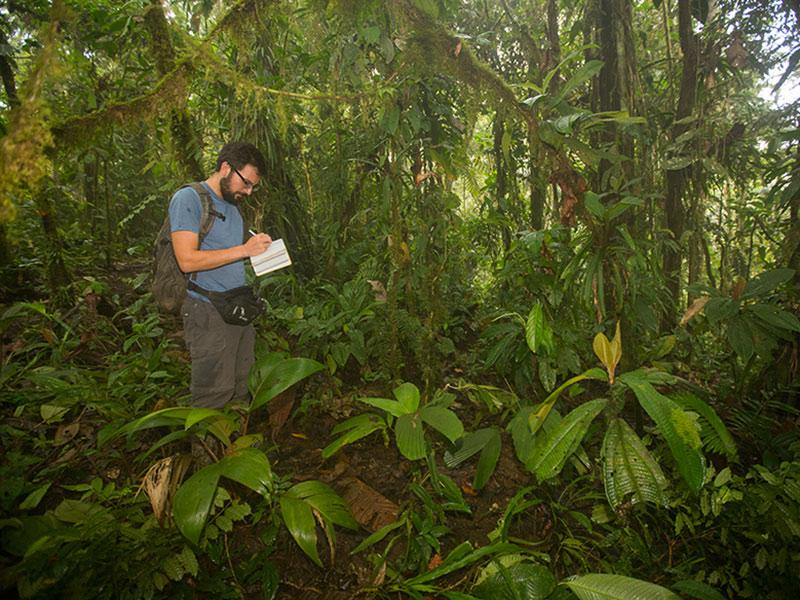Tulane ecologist recruiting students for new scholars’ program
For more than a decade, Jordan Karubian, an ecologist at Tulane University, and his Tulane colleagues have been taking students to northwest Ecuador, leading them on a research journey through one of the world’s major conservation hotspots for biodiversity.
Their Project Ecuador program has had such an impact on students — and the country itself — that they have decided to launch an Ecuador Scholars Program, a three-year cohort-based program for top-achieving undergraduates and graduate students.
They are recruiting 15 students for the first cohort and inviting anyone who is interested — from any discipline and including faculty — to the first Ecuador Scholars Program Symposium on Thursday, Oct. 21, from 5 to 7 p.m. in the Qatar Ballroom at the LBC.
“Tulane students are coming of age in an era defined by increasingly pressing environmental challenges,” said Karubian, a professor in the Tulane Department of Ecology and Evolutionary Biology. “This program empowers students to conduct scholarly research that directly and meaningfully addresses real-world issues they are passionate about.”
Karubian, who lived in Ecuador for six years, describes Ecuador as one of the most compelling places in the world to have an impact on biodiversity conservation, with some of the rarest species of birds, mammals and plants endangered due to deforestation.
The program is based at a large rainforest reserve and learning laboratory that Tulane established three years ago in partnership with FCAT, an award-winning non-governmental organization (NGO) with 20 years of community-based research and conservation experience. It is here where students and faculty work with local experts to understand the complex interactions between human society and the natural environment from a variety of disciplinary perspectives.
In recent years, the project has won national and international awards for its impact on poverty alleviation and conservation of endangered species, attracted over $3 million in grants and generated over 40 peer-reviewed publications. Dozens of Tulane students have traveled to Ecuador for study abroad opportunities and independent research in a wide range of disciplines, such as sociology, art, public health and ecology.
Karubian envisions the Tulane Ecuador Scholars program as one that will build on that success.
“The program is exactly the kind of opportunity that current Tulane students seek out,” he said. “It is one that teaches real-world skills, promotes positive change and encourages collaboration.”

